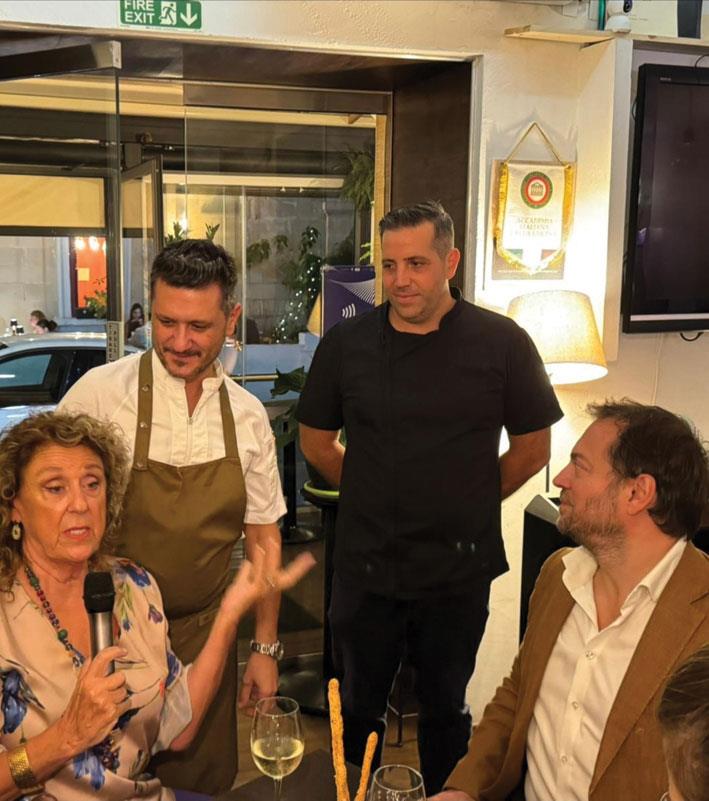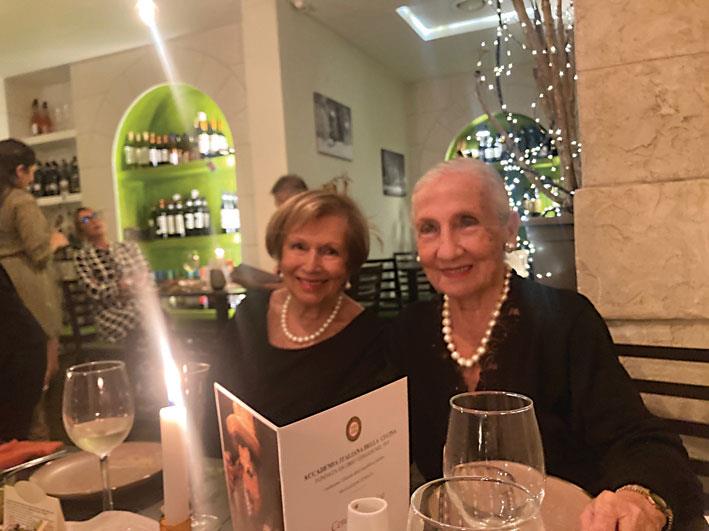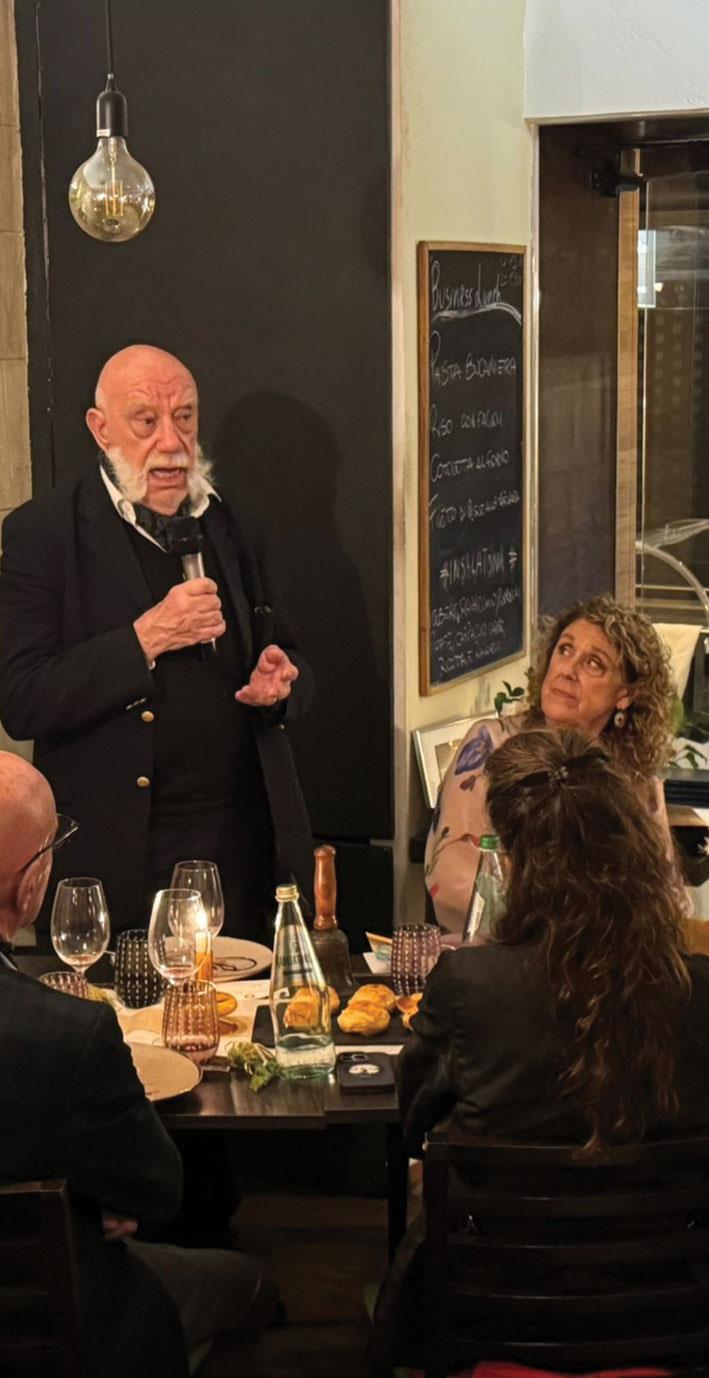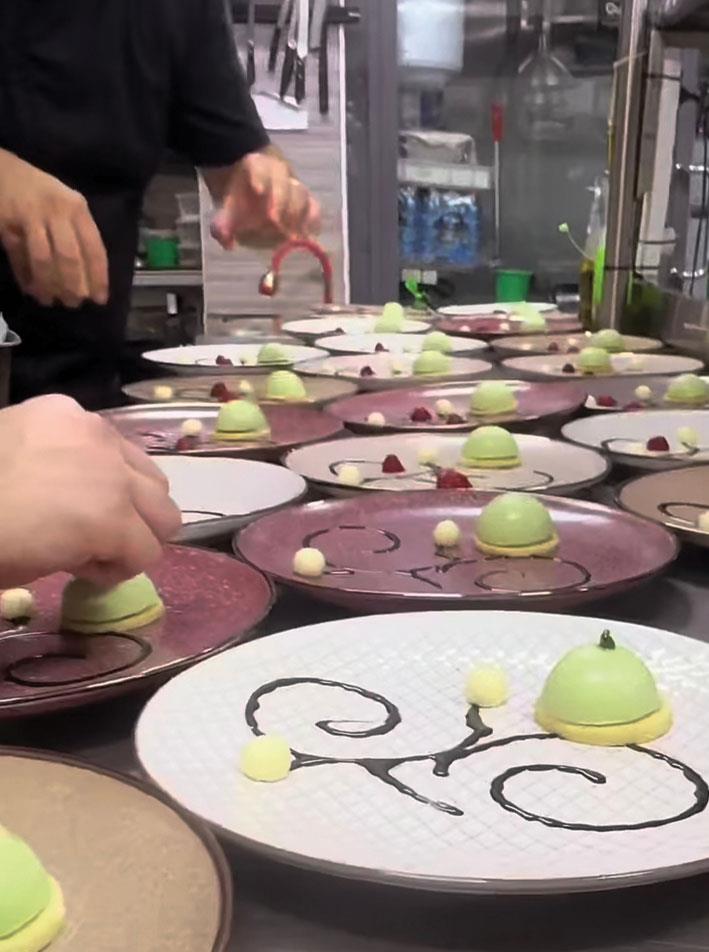For years and years pulses - lentils, chickpeas, broadbeans and beans of all kinds were used extensively as food and more and more present in religions, language, literature and so on. After being for a long time discriminated against and considered food for the poor, pulses have now found their rightful place because it has been universally acknowledged that they are healthy and have now a place of honour not only in the Mediterranean diet but also on the most refined of menus. They are healthy and beneficial to our wellbeing.

So, a couple of weeks ago at the popular restaurant, Sabbagata, in the heart of Paceville, dinner organised by the Accademia Italiana della Cucina, members and guests, delighted in dishes signed by two chefs: the well-known Salvatore Pavone and Claudio Schiavone, also an award winning chef. They were the stars of the Cena Ecumenica.
The tables were set in autumnal colours; rustic but at the same time, refined, a reflection of the taste of the Accademia's local president Massimiliana Tomaselli and which set the mood for the theme that evening.

Massimiliana rang 'her' bell giving a sign that the feast could start. She presented the theme of the year speaking of the social history of legumi and their significance attributed to them for so many years.

The serving of this parade of dishes was interspersed with readings, half serious, others not so serious, by Giovanni Costantino. Some readings were from the Greek storyteller Aesop, who lost the 'prima genitura' for a plate of lentils and on Bertoldo a well known character in Italian literature, a rough farmer, a thief but who was quite astute and managed to cheat the king of lands. But by upgrading him and integrating him into his court the king turned out to be more astute. Bertoldo, not being used to refined food fell ill and died. After all he was used to eating "rape e fagioli" which never did him any harm.

The guest that evening was Professor Alain Blondy, the former university professor and historian who has written so many books about Malta. He explained in Italian, the ancient origins of the Torta dei Re, what the French call Galette dei Roi usually served around the feast of the Epiphany. He said that in the filling a bean is hidden and whoever finds it is crowned for the day. This goes back to Roman times and Professor Blondy in his usual genial style, with a sense of humour, gave us the details.

And thus ended a very lively evening which was very well attended. We had gone through the delicious menu made up of some nine dishes. A marathon. The dishes proved that even the most humble of ingredients, in the hands of gifted chefs, like those of Claudio and Salvatore, can turn them into dishes fit for kings and, better still, good for our health.
The wines which accompanied each dish, all four of them were the popular Donnafugata wines from Sicily.
Massimiliana is a perfectionist and the hard work that always goes before these evenings are evidence of this.
[email protected]